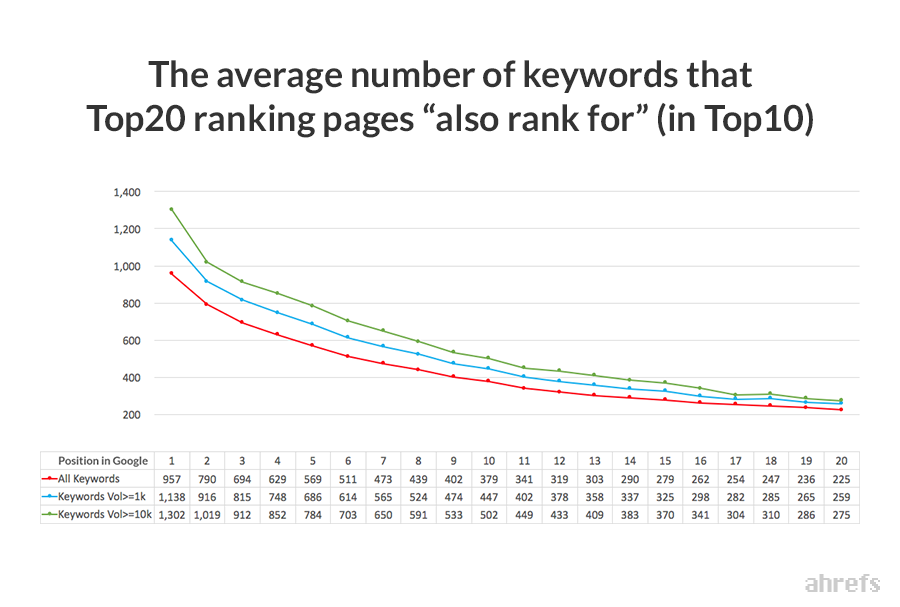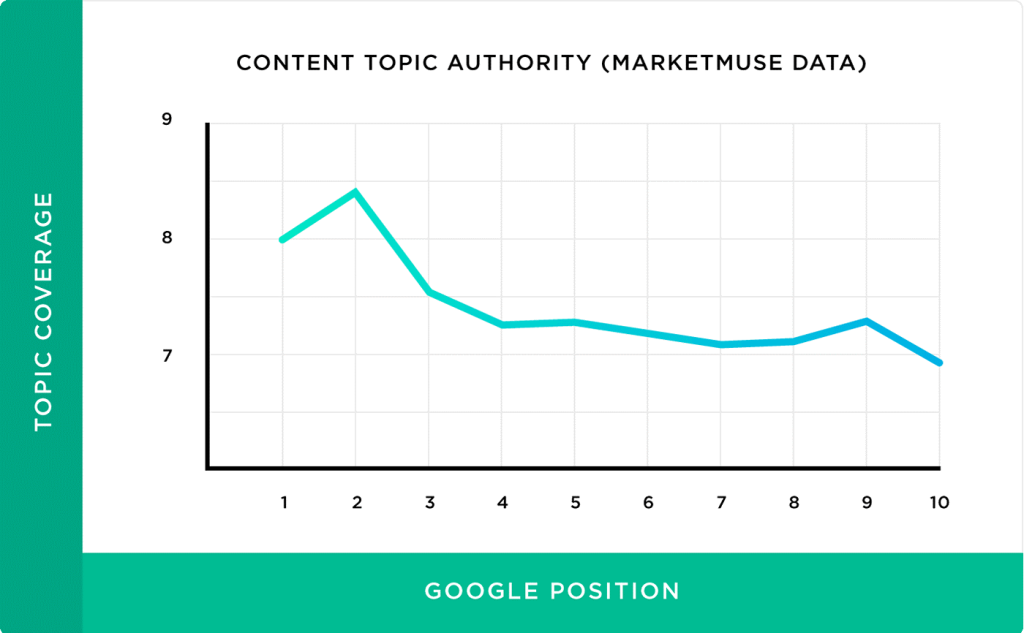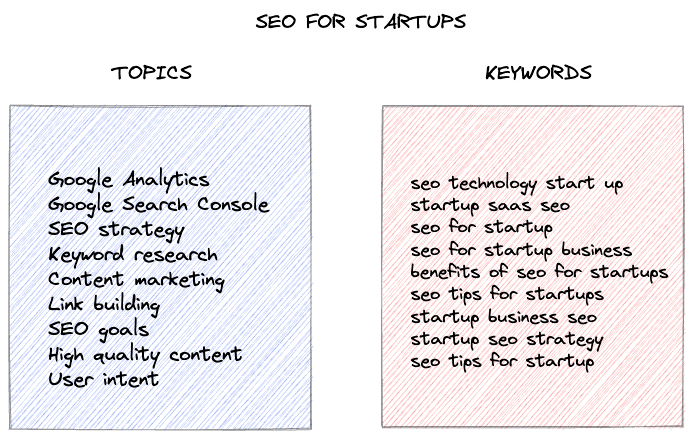SEO: Focus on keywords or topics? Comprehensive Guide!

Are you wrestling with the decision between optimizing your SEO strategy for “keywords or topics”? This pivotal choice can significantly influence your website’s ranking and user engagement.
Dive into our insightful blog post where we demystify the advantages of focusing on topics over keywords, offering a fresh perspective on how to elevate your content in the eyes of both your audience and search engines.
Content Overview:
What are Keywords in SEO?
Keywords in SEO (Search Engine Optimization) are the words or phrases that people use to search for information on search engines like Google, Bing, or Yahoo. They serve as the bridge between what people are searching for and the content you are providing to fulfill that need.
Keywords are crucial because they guide your content creation process and help you optimize your website pages, blog posts, and other digital content to be found by your target audience in search engine results.
By researching and targeting the right keywords, you can increase your site’s visibility, attract more relevant traffic, and improve your chances of converting visitors into customers.
The goal is to select keywords that are relevant to your content, have a significant search volume (indicating they are frequently searched for), and match the search intent of your target audience.
What are the Topics in SEO Content?
Topics in SEO content refer to broader subject areas or themes that your content aims to cover or address. Unlike keywords, which are specific words or phrases that searchers use in search engines, topics encompass a wider range of ideas, questions, and discussions related to a particular subject.
When you focus on topics for your SEO strategy, you aim to create comprehensive content that thoroughly explores a subject, providing valuable and in-depth information that satisfies the searcher’s intent.
This approach is aligned with search engines’ evolving algorithms, which increasingly prioritize user intent, content quality, and topical authority over simple keyword matching.
By focusing on topics, you can structure your content into clusters or hubs, where a single “pillar” page covers a broad topic overview, and more detailed “cluster” content addresses specific aspects or questions within that topic.
This not only helps search engines understand the scope and depth of your content’s relevance to a subject but also improves the user experience by offering a comprehensive resource on a given topic.
Focusing on topics rather than just keywords can enhance your visibility in search results for a wider range of queries, establish your site as an authority on particular subjects, and meet the needs of your audience more effectively by providing more relevant and complete information.
Keywords are important!
You may want to know why SEO matters. What is the difference between keywords or topics?
To start you must know:
Search engines generate 60% -80% of the traffic to a website. In order to achieve success with a website, it is essential to choose SEO keywords or topics .
Also, according to a study by Ahrefs:
There will be nearly 1,000 other relevant keywords in the top 10 for the average #1 ranking page. When your page ranks at the top of the search engine results for a given term, it also appears for about 1,000 other related terms. It illustrates the power of topic-based search compared to keyword-focused search .

Certainly, I’m not suggesting that you should not conduct keyword research or optimize your content around specific search terms.
But the topics are worth more!
You don’t have to focus on one specific keyword when writing for topical authority because you don’t have to confine yourself to one. When it comes to developing content around a specific keyword, SEOs or content marketers often run into a wall.
You’ll actually be able to solve better problems when you put that aside and start thinking about the topic as a whole, rather than trying to stuff a keyword into a particular part of your article. Rather, you should write about the topic and help your users solve their problems.
The user’s behavior has changed.
Having become mainstream a decade ago, smartphones have changed the way we search for information dramatically. Today, to search the internet voice command devices (e.g., Google Home, Alexa, etc.) are becoming more popular in homes .
Consider your last smartphone search as opposed to a laptop search. When searching with your VCD or voice search via your phone, do you use more words than when searching on your laptop or tablet? It’s obvious that you do. It isn’t a common question to ask, “Where is the nearest gluten-free Chinese restaurant?”
Since our search habits have evolved, search engines have changed their ranking system. A Chinese restaurant with gluten-free options could be ranked for those topics rather than ranking for keywords like “What is the closest Chinese restaurant with gluten-free options?” Besides that, there are about a hundred other factors to consider.
Increasingly, search is centered around topics
Users want Google to show them content that provides them with ALL the information they need in one place. Another way to say this is comprehensive content. In addition, if your post covers an entire topic, it is more likely to rank .

Google is increasingly moving away from keywords in search queries and focusing more on understanding the multiple meanings that searchers intend to convey. This was noted in an earlier discussion of the 2013 Hummingbird update. Topics are also being used by Google to redefine relevance .
According to Google’s Danny Sullivan, topic-based search results can be modified back in 2018. Danny tweeted:
“A new dynamic way to quickly change results is coming, such as how you can toggle to quickly change about a dog breeds. This is powered by the Topic Layer, a way of leveraging how the Knowledge Graph knows about people, places, and things into topics”.
A new method of crafting search queries by topic was introduced by Google on September 28, 2022:
Focus on Topics: Google’s approach
It is important to remember that Google understands the world in terms of topics rather than keyword phrases. Google is analyzing a page and asking:
What’s the purpose of this page?
What’s the subject?
As a result, I believe it’s more useful to create content around topics.
Benefits of topics
Organizing information doesn’t happen through keywords; it happens through topics. Topics can be used to determine semantic relationships, but keywords can reveal different search terms used to find the same result .
By adding more keywords, you won’t make your post more search-engine friendly. Taking up a specific topic naturally during conversation will allow you to rank.
Would it be possible for you to rank for multiple topics? That’s for sure. The answer depends on whether the topics are closely related and whether you have covered any additional topics related to the subject.

A noticeable difference can be seen between topics on this list and keywords on the topic “SEO for startups”.
What are some common challenges that website owners face when transitioning from a keyword-based approach to a topic-based approach?
Transitioning from a keyword-based approach to a topic-based approach in SEO can be a bit tricky for website owners. Here are some common challenges they might face:
- Content reshuffling: Changing gears to a topic-focused strategy means rearranging existing content on the website. It takes time and involves updating page titles, headings, and overall content structure.
- Keyword mindset: People who manage websites and create content are used to thinking mainly about keywords. Shifting to a topic-based approach requires a change in mindset to focus more on providing valuable content that covers various aspects of a specific topic.
- SEO ups and downs: At first, there may be some fluctuations in search rankings and organic traffic as search engines adapt their algorithms to fit the topic-focused approach. It might take a while to see the positive impact on SEO performance.
- Finding the right topics: Figuring out which topics to target can be a challenge. Website owners need to research and analyze thoroughly to find the most relevant and valuable topics for their audience. This involves looking at search volume, competition, user intent, and industry trends.
- Blending keywords into topics: While the focus is on topics, keywords still matter for SEO. It can be tricky to strike a balance between creating comprehensive content on a topic while naturally incorporating relevant keywords.
- Keeping an eye on the competition: Understanding how competitors approach topics and optimizing content accordingly can be challenging. Analyzing their strategies and finding unique angles to stand out requires careful research and analysis.
- Quality and depth of content: A topic-based approach demands in-depth, comprehensive content that meets user needs and adds value. Maintaining consistently high-quality content across various topics can be demanding and time-consuming.
- Internal links and site structure: As content is organized around topics, website owners need to ensure effective internal linking and a logical site structure. This helps visitors and search engines navigate and understand the connections between different pieces of content.
- Educating the team: Shifting to a topic-focused approach may require explaining the new strategy, its benefits, and expected outcomes to everyone involved. Making sure everyone understands and supports the new approach is crucial for successful implementation.
- Tracking progress: Measuring the success of a topic-based approach is more complex than just monitoring keyword rankings. Website owners need to define new metrics and set up tracking systems to monitor the impact on organic traffic, user engagement, and conversions.
By recognizing and addressing these challenges, website owners can successfully navigate the transition from a keyword-based approach to a topic-focused SEO strategy, reaping the long-term benefits of targeting relevant keywords or topics.
What are some effective strategies for identifying relevant topics and subtopics to target in an SEO campaign?
Here are some effective strategies for finding the right topics and subtopics to target in your SEO campaign:
- Understand search intent: Figure out what people are looking for when they search online. Are they seeking information, products, or solutions to a specific problem? Understanding search intent helps you identify the types of topics and subtopics that will resonate with your target audience.
- Check out your competition: Take a look at what your competitors and industry leaders are doing. See what kind of content they’re creating. Look for areas where you can offer a unique perspective or provide more value. Take note of the topics and subtopics they cover extensively, as well as any they might have missed.
- Explore related searches: When you search for keywords or topics on search engines, scroll down to the “related searches” or “people also ask” sections. These suggestions can give you ideas for related topics and subtopics that people are interested in.
- Tap into social media and forums: Keep an eye on social media platforms, online communities, and industry-specific forums. See what discussions are happening and what questions people are asking. This can help you identify relevant topics and subtopics that you should address.
- Use topic clustering: Start with a few core topics that are broad and comprehensive. Then, create subtopics around each core topic. This helps organize your content and establishes you as an authority in those topics.
- Stay updated on industry trends: Stay in the loop with the latest trends and developments in your industry. These trends can give you insights into emerging topics and subtopics that are gaining popularity among your target audience.
- Consider user-generated content: Engage with your audience through comments, surveys, or social media interactions. Pay attention to their questions and the topics they discuss. User-generated content can provide valuable insights and ideas for relevant topics.
- Analyze content gaps: Compare your content to what your competitors are doing. Look for topics and subtopics that they cover extensively but you haven’t addressed yet. This can guide you in creating valuable content to fill those gaps.
By using these strategies, you’ll be able to find the right topics and subtopics to focus on in your SEO campaign. This will ensure that your content aligns with what people are searching for and helps you attract more organic traffic.
Trick: Online communities are a great way to find hot topics
Make sure you search outside your existing subscribers for relevant topics for your blog or website if you want to increase traffic. People in your target audience often post questions, concerns, and challenges in online communities, such as Facebook or LinkedIn groups. Topics such as how to improve customer service or common fundraising mistakes may have lengthy discussion threads .
Google Trends can be used to see how many other people are searching for similar topics when you come across common questions posed in these online communities. Think about how you can expand on or add new perspectives to the content already available on this topic. Depending on how many people are engaging with certain questions or challenges, you might consider covering them in your blog or website.
How can I optimize my content for topics rather than keywords?
To optimize your content for topics rather than keywords, you can follow these strategies:
- Go deep with your content: Instead of targeting specific keywords, create detailed and thorough content that covers the entire topic. This way, you provide more value and establish your expertise.
- Research your topic: Start by exploring the broader topic and find out what subtopics and questions are related. This research helps you plan your content to cover different aspects of the topic.
- Use semantic SEO: Instead of only focusing on exact keyword matches, optimize your content by including related terms, synonyms, and variations that make sense for the topic. This helps search engines understand what your content is about.
- Create a topic cluster: Organize your content around a central page that covers the main topic, and create supporting content that delves into specific subtopics. Link these pages together to show search engines the breadth of your expertise.
- Match user intent: Understand what users are looking for when they search for your topic and create content that meets their needs. Provide the information, solutions, or answers they are seeking.
By following these strategies, you can optimize your content for topics and provide valuable information to your audience while improving your search engine visibility.
What is semantic SEO, and how can it help optimize content for topics?
Semantic SEO is all about making content around topics instead of just keywords. The goal is to cover all the questions people have about a certain topic rather than obsessing over a single keyword. Here are a few ways semantic SEO can help you make your content better:
- Goes deeper: Semantic SEO adds more depth and meaning to your web content, which helps Google understand it better. This means you can create high-quality content that shows up more often in search results.
- Builds content clusters: Semantic SEO lets you group your content into clusters based on related topics, not just keywords. This helps search engines get a sense of the overall topic and context of your content.
- Matches search intent: Semantic SEO allows you to create content that matches what people are actually looking for. By understanding the true intentions behind search queries about your topic, you can create content that meets the needs of your audience.
- Delivers what users want: Semantic SEO aims to fulfill the user’s search intent and become an authority on a particular subject in the eyes of both the search engine and the user. By focusing on the meaning and topic rather than specific words, you can provide valuable content that establishes your expertise.
By using semantic SEO, you can optimize your content for topics and create valuable content that meets your audience’s needs. At the same time, it will improve your visibility in search engine results.
How to create topic clusters using SEMRush Keyword Manager?
Here’s how you can create topic clusters using SEMRush Keyword Manager:
- Make a list of keywords: Start by using SEMRush’s Keyword Magic Tool to find relevant keywords related to your main topic. Just gather a bunch of keywords and group them by topic or subtopic, simple as that.
- Start a new list: Go to Keyword Manager and hit that green button to create a fresh list. Put in your seed keywords, which should be the core of your business and broad enough to cover the main subject but not too broad.
- Sort your keywords: SEMRush will use your seed keywords to generate closely related keywords that can be grouped into clusters. Use the tool to sort your keywords into groups that make sense together.
- See your clusters visually: Take a look at the mind-map view to get a visual representation of your clusters and how your content is organized. This way, you can spot any missing pieces that you need to add.
- Decide on your priorities: Utilize the data provided by Keyword Manager to determine which topics you should focus on first when creating content. This will boost your chances of ranking higher in search results.
By following these steps, you’ll be able to use SEMRush Keyword Manager to create topic clusters that establish your authority and help you rank for more terms. Don’t forget to track your progress by keeping an eye on keyword rankings, traffic, and conversions to assess how effective your strategy is.
End: How to Start with Topics?
Instead of focusing so much on keywords, plan your content strategy by considering the topic as a whole (Keywords are still important, but you must first plan and understand the topic) .
As a result, you should choose one topic and create as much content as needed to cover it entirely. Obviously, if you want to do this convincingly, you will need to create a network of content, arranged logically, that allows your site users to answer any question they have about the topic.
The subtitle is just as important as the title! Search engines will display subheadings if they are written appropriately. Think of subheadings as full article titles that an audience might search for.
You now focus on how each blog post fits within the broader topic instead of optimizing it around a single keyword. In this way, you can identify how your blog post fits into the topic as a whole based on the keyword you choose.
Your site will become an authority on the subject if you do this convincingly. Authority on a topic is known as topical authority.
What do you think about topics? How can Topics increase traffic, in your opinion? Do you have an idea that you would like to share? Write to me.
Sources:







Responses